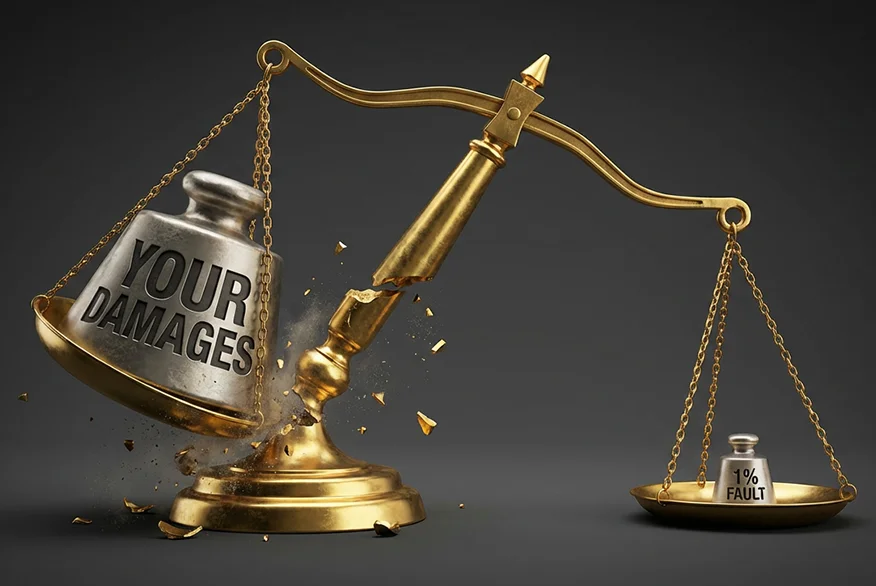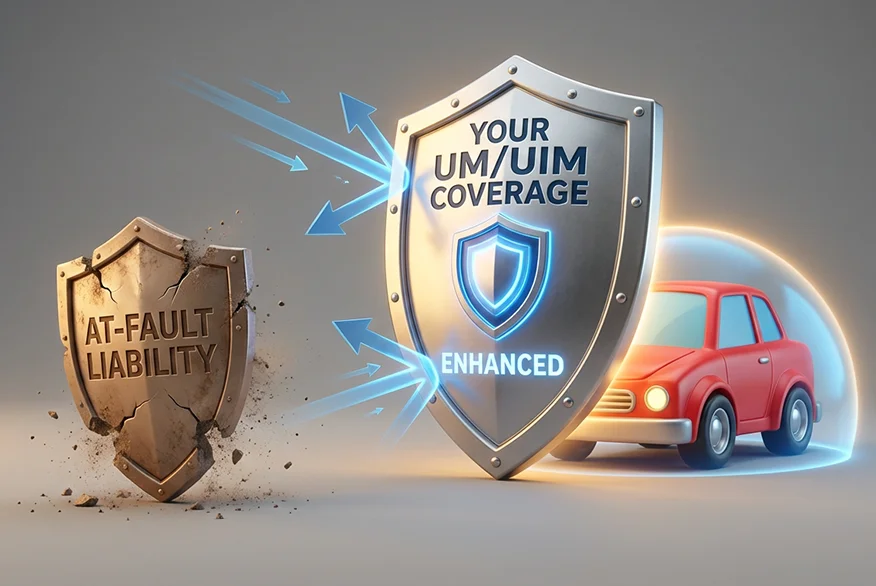VA Benefits Denied or Rated Too Low? Understanding Your Appeal Options with SG Legal Group
Receiving a decision from the Department of Veterans Affairs (VA) that denies your disability claim or assigns a rating lower than expected can be incredibly frustrating and disheartening. After navigating the initial application process, an unfavorable outcome can feel like a major setback.
However, it is crucial to understand that a VA denial or low rating is NOT the final word so long as you properly and timely challenge the decision.
Under the VA Appeals Modernization Act (AMA), you have the right to seek review of the decision. SG Legal Group understands the challenges veterans face when dealing with unfavorable VA decisions. Our dedicated team has the experience and knowledge to effectively handle VA appeals, fighting vigorously to help you secure the disability benefits you have rightfully earned.
Common Reasons for VA Claim Denials or Low Ratings
Understanding why claims are denied or rated low can help in formulating an effective appeal strategy. Common reasons include:
- Insufficient Medical Evidence: The evidence submitted may not adequately diagnose a current condition or demonstrate its severity.
- Lack of Nexus: Failure to establish a clear link (nexus) between the current disability and an event, injury, or illness during military service.
- Missed Filing Deadlines: Failing to submit the claim or appeal within the required timeframes.
- Condition Not Deemed Service-Connected: The VA determines the evidence does not support that the condition resulted from or was aggravated by service.
- Errors in Paperwork: Submitting incorrect forms or forms with inaccurate or incomplete information.
- Unfavorable Compensation & Pension (C&P) Exam: The findings or opinion of the VA's C&P examiner may not support the claim.
Navigating the VA Appeals Modernization Act (AMA): Your Review Options
Implemented in February 2019, the Appeals Modernization Act (AMA) streamlined the previously cumbersome appeals process, providing veterans with three distinct lanes for seeking review of a VA decision. You, the veteran, choose the lane that best suits your situation.
Lane 1: Supplemental Claim (Adding New Evidence)
- When to Use: This is the appropriate lane if you have new and relevant evidence that was not available or submitted when the VA made its previous decision. "New" means the VA hasn't seen it before, and "relevant" means it tends to prove or disprove an aspect of your claim. This lane is also used if you are seeking review based on a change in law, such as new presumptive conditions established under the PACT Act.
- Process: You must file VA Form 20-0995, Decision Review Request: Supplemental Claim. This can be done online for disability compensation claims or via mail/in-person for other benefit types. You must submit or identify the new and relevant evidence with your request. Importantly, under this lane, the VA has a "Duty to Assist" you in gathering evidence you identify, such as records from federal facilities or private doctors.
- Timeline Goal: The VA's target processing time for Supplemental Claims is approximately 125 days.
- After Decision: If you disagree with the Supplemental Claim decision, you can file another Supplemental Claim (if you have more new and relevant evidence), request a Higher-Level Review, or file a Board Appeal.
Lane 2: Higher-Level Review (Requesting a Senior Reviewer)
- When to Use: Choose this lane if you believe the VA made a legal or factual error in its decision and you do not have new evidence to submit.
- Process: You must file VA Form 20-0996, Decision Review Request: Higher-Level Review. This can be filed online for compensation claims or via mail/in-person. A more experienced VA adjudicator, who was not involved in the original decision, will conduct a fresh review (de novo) based only on the evidence that was considered in the prior decision (this is a "closed record" review). You have the option to request a one-time, informal phone conference with the reviewer to point out the specific errors you believe were made. The VA does not have a Duty to Assist in this lane. If the reviewer finds a pre-decisional "duty-to-assist error" (meaning a duty to assist error prior to the decision being challenged), the claim is typically sent back to be corrected.
- Timeline Goal: The VA aims to complete Higher-Level Reviews in approximately 125 days.
- After Decision: If you disagree with the HLR decision, your options are to file a Supplemental Claim (if you now have new and relevant evidence) or appeal to the Board of Veterans' Appeals. You cannot request another Higher-Level Review for the same issue.
Lane 3: Board Appeal (Appealing to a Veterans Law Judge)
- When to Use: This lane takes your case directly to the Board of Veterans' Appeals (BVA) in Washington, D.C., for review by a Veterans Law Judge (VLJ). You can request a Board Appeal after an initial claim decision, a Supplemental Claim decision, or a Higher-Level Review decision.
- Process: You initiate this by filing VA Form 10182, Decision Review Request: Board Appeal (Notice of Disagreement). This can be done online, by mail, fax, or in person. When filing, you must choose one of three dockets, which dictates how the appeal proceeds:
- Direct Review Docket: The VLJ reviews only the evidence that was part of the record when the decision under appeal was made. No new evidence can be submitted, and there is no hearing. This is generally the fastest Board option. Timeline Goal: Average 365 days.
- Evidence Submission Docket: You can submit new evidence directly to the Board. This evidence must be submitted with VA Form 10182 or within 90 days after the VA receives the form. The VLJ reviews the old and new evidence. There is no hearing. Timeline Goal: Longer than one year.
- Hearing Docket: You will have a hearing with a VLJ (options include virtual, videoconference at a VA facility, or in-person in D.C.). You can submit new evidence at the hearing or within 90 days following the hearing. Timeline Goal: This is typically the longest option, often taking more than one to two years.
- After Decision: If you disagree with the BVA's decision, you generally have two paths forward: file a Supplemental Claim back at the VA Regional Office (only if you have new and relevant evidence) or appeal the BVA decision to the U.S. Court of Appeals for Veterans Claims (CAVC) within 120 days of the BVA decision date.
Critical Timelines: Don't Miss Your Appeal Deadline!
Meeting deadlines under AMA is crucial, primarily to preserve your potential effective date, which determines when your benefits (and any back pay) begin.
- One-Year Deadline: You generally have one year from the date on your VA decision notification letter to file a request for a Higher-Level Review or a Board Appeal. Filing within this timeframe allows you to continuously pursue the claim and potentially preserve the original effective date.
- Supplemental Claims: While a Supplemental Claim can technically be filed at any time, filing it within one year of the decision you are challenging is necessary to maintain continuous pursuit and protect the potential effective date.
- Contested Claims: Board Appeals for contested claims have a shorter deadline: 60 days from the decision letter date. Contested claims are when more than one person are claiming the same monetary benefit that only one person can claim. These are relatively rare and typically involve attorneys’ fees disputes.
- Board Evidence Deadlines: Remember the strict 90-day windows for submitting evidence in the Board Appeal Evidence Submission and Hearing dockets.
Missing the one-year deadline for HLR or Board Appeal severely restricts your options. Typically, your only path forward from that specific decision would be a Supplemental Claim, which requires new and relevant evidence and may result in a later effective date, potentially costing significant back pay. Timely action is paramount.
Why Partner with SG Legal Group for Your VA Appeal?
Successfully appealing a VA decision often requires more than just filling out a form. It demands a strategic approach tailored to the specifics of your case and the complexities of VA law. SG Legal Group provides the experienced legal support needed to navigate this challenging process.
- Navigating Appeal Complexities: The AMA offers choices, but each lane has distinct rules, evidence requirements, and strategic implications. We help you understand these nuances and avoid procedural pitfalls. Addressing the reasons for the initial denial often requires targeted evidence or specific legal arguments developed by experienced counsel.
- Strategic Lane Selection: Choosing the right appeal lane is critical. Filing a Higher-Level Review when you have new evidence, for example, would be ineffective. SG Legal Group analyzes your case, the VA's decision, and any available evidence to recommend the most advantageous path forward.
- Robust Evidence Development: For Supplemental Claims and Board Appeals involving new evidence, simply having records isn't always enough. We work proactively to identify, gather, and develop compelling evidence, including obtaining crucial medical opinions (nexus statements) from qualified experts and crafting persuasive lay statements to support your claim.
- Persuasive Arguments: Whether preparing for a Higher-Level Review informal conference or arguing before a Veterans Law Judge at a Board hearing, our attorneys excel at identifying VA errors and formulating clear, persuasive arguments grounded in VA regulations and case law.
- Dedicated Representation and Advocacy: We represent you throughout the chosen appeal process, handling communications with the VA, preparing you for hearings, and advocating strongly on your behalf. Our experience extends from VA Regional Offices to the Board of Veterans' Appeals and, if necessary, the U.S. Court of Appeals for Veterans Claims (CAVC). At the Board and Agency levels we handle VA appeals on a contingency fee basis, meaning you pay no attorney fees unless we win back pay for you. If we need to appeal your claim to CAVC, you pay nothing as attorneys’ fees are covered under the Equal Access to Justice Act.
Effectively appealing a VA decision involves legal strategy – choosing the correct lane, developing the right evidence (or knowing when not to submit it), and making the strongest legal case possible. This strategic legal work is the core value SG Legal Group brings to your VA appeal.






